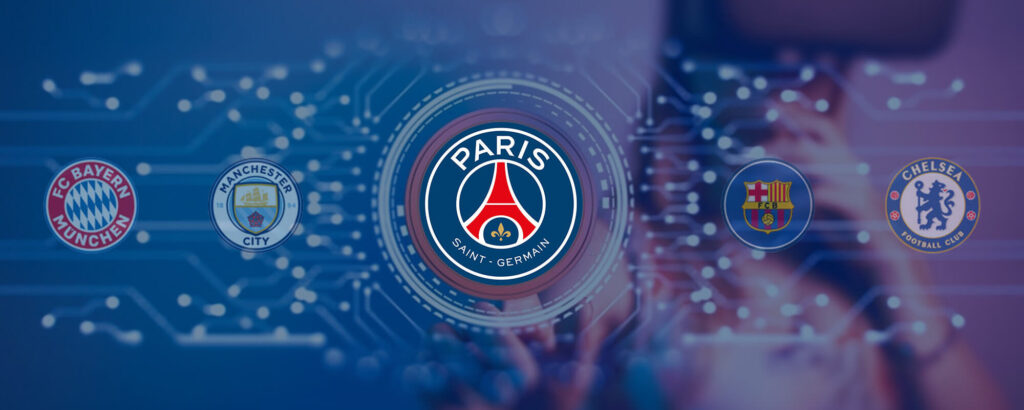When you think of sports, there are a few pictures that will inevitably flash through your mind. The image of jam-packed stadiums, pre-game jitters, a giant foam finger, but most importantly, the extremely vocal fans. Sports fans form the lifeblood of any club or team. At its core, the spirit of sports is lit by the communities that we create over a particular sports club or athlete. Looking to encourage this solidarity among fans, many sports clubs are turning to the concept of ‘fan tokens’ to create a sense of team loyalty.
But how can fan tokens help the sports industry and what does it mean for the fans?
Sports fans are extremely passionate about the clubs they support- they invest a lot of time, money, and energy into following their favorite teams. Despite this, interactions and connections to the team are limited. Fan tokens are set to change this. These tokens first started creating a buzz last year in June, when FC Barcelona jumped on the bandwagon with the launch of their fan tokens.
The tokens were sold out in a couple of hours, earning a whopping $1.3 million. Taking inspiration from this success story, many other football teams followed suit. This has helped muster a new wave of fan support, providing sports clubs with additional streams of revenue.
The hype over these tokens was boosted as PSG released a new fan token in 2021 as a part of Messi’s “welcome package”. But there’s a lot more to it than just that.
The sports industry is becoming increasingly globalized. Each club has fans from various countries, ethnicities, and cultures. Engaging with the team can be challenging when you live in a different country. This type of token allows clubs to overcome the challenges of distance when communicating with fans. For example, FC Barcelona has an estimated 450 million fans worldwide, who are now within their reach thanks to this token model.
Additionally, sports teams also have to remember that their fan base is turning digitally native. This means that fans expect live shows, interviews, and highlights to be provided via digital media as well. Needless to say, if sports clubs are looking to stay ahead of the curve, they need to appeal to younger crowds by embracing digital transformation. With these tokens, teams can quickly increase fan interaction both online and offline while simultaneously improving relationships with their sponsors.
Striving for new technology
Many industries have been finding it difficult to meet the technological needs of the new generation- and sports is no different. Since digital natives are so used to online interactions via social media platforms, they expect this from their sports club as well.
This need for digitization has started putting pressure on sports organizations to up their game and capitalize on their online presence. The global e-sports market is estimated to reach $2.89 billion in 2025, with the majority of this revenue coming from sponsorships, merchandise, tickets, and streaming. Seeing the rising popularity of digital solutions, the need for new technology has come to the forefront, giving space for new token concepts.
To understand that let’s have a look at some of the basics.
What are fan tokens?
These tokens can be considered digital assets. Unlike NFTs, they are completely fungible, which means that one token has the same value as another and can be exchanged on the platform for various goodies like merchandise, live shows, tickets, and experiences. I guess you could compare a fan token platform to an amusement park, where you exchange your tickets (that you buy with fiat currency) for rewards like stationery and toys.
Similar to cryptocurrency and NFTs, these tokens are built on the blockchain. They are relatively new crypto assets that fans can buy directly from various platforms
How do fan tokens work?
Think of these tokens as a fun relative of cryptocurrencies- they both work pretty much the same way. You can buy and sell these tokens just like how you would do with your bitcoins. Tokens are generally assets that can represent proof of ownership or even membership.
During a transaction, the seller will set a price for each token. When the token has a sufficient user base, fans can start voting on various club-related issues. The club generally decides which decisions can be made by the fans, but some typical examples include-
- Designs for club merchandise, tour bus, kits, etc.
- The location of matches
- Nominating ‘Man of The Match’ winners
The ability to contribute to their favorite club’s future can help sports fans feel much more connected to the team they support. To a large extent, these tokens can contribute to building a thriving community of loyal fans on various digital platforms.
Through the purchase of these tokens, users are granted access to an elite inner circle of loyal fans with similar interests and ideals. They can also use a mobile voting platform to make fan-led decisions. The more tokens a fan holds, and the more they vote, the higher their clout rating will be. This will guide them up to various reward tiers until they have access to the biggest VIP benefits that are on offer.
Team loyalty: An incoming revolution
Now that we have understood the nuances of fan tokens, the burning question would be:
What does this mean for the future of fan support?
Needless to say, these tokens are going to revolutionize the industry with their transparent and interoperable nature. Here are just a few ways through which these tokens can be used to boost team loyalty
A stake in certain club decisions
Up until now, there wasn’t a way for fans to participate in the decision-making process and be involved in matters like game locations and merch design. With the advent of this token model, all of that has changed. The tokens act as the club’s virtual currency and can be purchased with fiat currencies like pounds, dollars, or euros.
After buying them, fans can earn exclusive rewards and voting rights in decisions that affect their club, from deciding the color of a team kit, to even picking the teams. Last year, Cypriot team Apollon FC allowed fans to vote on its match line-up and formation, which led to a win.
Opportunities to receive rewards
These tokens can be used to offer exciting rewards to fans. They can be exchanged for a variety of collectibles and experiences like merch and live show tickets. Loyalty programs can also use these tokens as a foundation instead of fiat currency. For example, fans can be rewarded with tokens for certain activities like sharing content, liking social media posts, etc. Through a loyalty program, they will be able to accumulate tokens every time they participate in such activities, eventually being able to spend on various club merchandise.
Fan token platforms are instrumental in fostering engagement among sports fans. They also help clubs enhance sponsor relationships and loyalty ecosystems. Fans can now get rewards for spending money, which in turn, boosts profits for sports teams.
Digital collectibles
Blockchain technology enables sports clubs to develop unique one-off digital assets or limited-edition digital collections that are provably scarce and secured on a transparent digital ledger. Traditional collectibles like game-used items and autographed memorabilia have always been popular among sports fans. However, we live in the digital age now and clubs need to adapt to this transition. Digital collectibles can help take the first step. Not only do they help diversify fan engagement, but they also align revenue streams with digital-native fans.
Through blockchain technology, sports teams can develop their digital trading cards and memorabilia with provable ownership and authenticity. Fans can then buy and trade these assets, enabling them to connect with clubs from wherever they are in the world. The shift from physical memorabilia to digital can help fans trade more easily across the world. There are also several other added benefits of digital collectibles. For starters, they can never be destroyed, forged, or replicated, and have a completely transparent cryptographically secure audit trail that allows fans to prove ownership. They’re also designed to be interoperable, which means that trading cards can be used over a variety of applications.
Related article on Smart Stadiums
Many clubs are already prospering from the release of digital collectibles. In baseball, Major League fans can purchase blockchain-based All-Star cards at a range of prices, allowing clubs to earn more and appeal to the youth at the same time.
Augmenting the viewing experience
Since the sports industry has a global fanbase, it is quite obvious that not all fans will be able to attend live games and events. This is why clubs should try to find other ways to cater to fans from different countries. The most plausible option here is to focus on digitizing the viewer experience.
For instance, the English Premier League now allows fans to choose the perspective they want to watch the game from, including the ball, the referee, or even a specific player, meaning they can see the game from every angle. There are also several tests being conducted for new technology that will let viewers ‘cheer’ during live matches via an app. All they have to do is click a button on the app to cheer, applaud or start a chant. Their recorded voice will be piped into a stadium’s existing speaker systems.
Conclusion
Turning digital can help sports organizations revitalize their offerings and gain added revenue streams. One of the best parts about this token model is that they completely reinvent fan interaction with clubs. The future of sports is purely focused on fan engagement, and FTOs will soon be part and parcel of the sporting experience.


